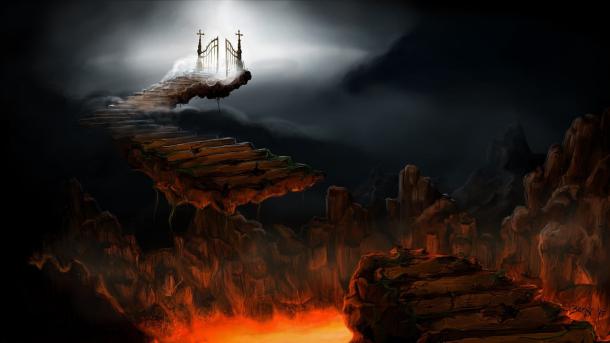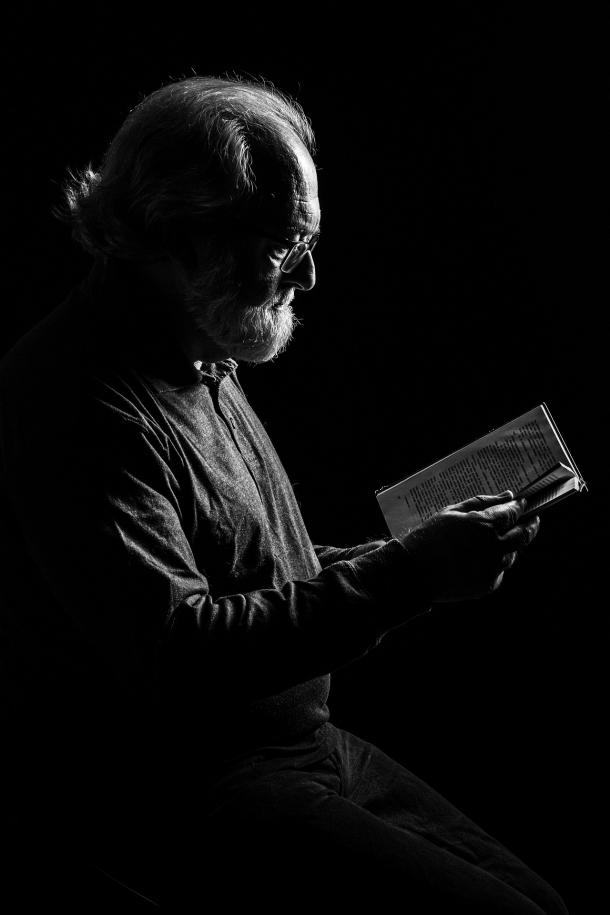0%
THE WRITER AND THE CRITIC
To the Authors, a Eulogy
The 21st century has seen the rapid rise of the false writer, the one that writes but not for the purpose of writing. The false writer writes for the purpose of esteem, selfish gains intended to be glorified by a selfish society, and for the sake of false ideals that lie in the lies of the false writer once he starts his promotions to the mass public which simply does not know how to see the quiddity of the false writer (which is not a mistake of the public, but a breach of confidence on the part of the false writer who stoops down to the use of manipulation which only further strikes down any remaining credibility).
It is of importance that I mention here my awareness of the unfortunate ways in which the world functions, not only nowadays, but throughout history, and I shall right away state that I am aware of the fact that every writer, be it the false writer, or the true, needs to publish his work, and I do not remain senseless, or ignorant to the cruelty of the 21st century, nor any century, in fact. I am not against a person making his honest living! I am against lies, dishonesty, and disrespect of a heritage which I hold so dear to my heart – the literary heritage.
Many writers have seen the light of day in the 21st century and, God willing, may many more see that same light, but may they, upon seeing the light also see that what the light leaves is a shadow, and that that shadow has a shadow of its own. May they see that not every shadow is recognizable from afar, and that many shadows lose their sharp edges due to the cruelty of time, and may this not come as a deterrent in the path of creating art for the sake of art’s creation, which is the only thing technology will never be able to recreate to the extent of human imagination. And may they write. May the false writer write, as well, for he, too, creates, although he does not create long.
As I have already stated, writing is a continuous process. It is a restless compulsion. And it is this that separates the false writer from the true writer, as well, and not merely the quintessence of their literature. The 21st century, especially the third decade, has seen a motley of writers eager to stop writing. Eager to say, ‘I have written’. Eager to claim that they had once made art. Eager to publish. There is the rub. For a published writer is a successful writer, a published writer is an accomplished writer, a published writer is a writer that may write again someday, but he has written before and that is what counts, that is what creates a revenue stream, and that is what gives esteem to a person that does not honor the lineage of true writers of the past, present and future. Because now they are no longer your humble writer, no, now they transcend into their label which proclaims them as an eternal writer in the eyes of the general public. Now the false writer embodies the label and becomes the more heinous being, here the false writer becomes ‘the author’.
I say, it is the author which has made a world of difference in the current, because now much harsher filters need be applied to literature, and suddenly what should be enjoyed and read freely, or at least free to the decree of the standard of the last decade, becomes something that first needs to be assessed, processed, evaluated, deconstructed, compared, reread, lobotomized, butchered, hoped and prayed for, and blessed with holy water before it is classified as pure writing. And that is where we arrive at the problem of today’s day, that is where the job of the critic becomes much more laborious, and that is why many decide not to bother in the first place with literature as it exhales its feverish, dying breaths of oxygen. However, I personally remain optimistic about the state of affairs of literature, which will blossom into something praiseworthy following the reform of which I warn. There will be new classifications, new diversification of the art form. Millions of works of art will enter the sieve and indubitably the ones that will compose the new period will be ones that stay true to the past, the ones that respect the literary heritage, the works of true writers in command of the three aspects, whether they be published, unpublished, self-published or whatever else the age has to offer.
Self-publishing has produced not only a myriad of books, but a detestable quantity of authors, false writers and true writers all in one. The notion that one may write, publish, amass following and thrive on the merit of one’s own effort is no small matter, but I say it is hardly a new matter at all. The clutter of young adult romance, drama, thrillers and mysteries produced in the last few years alone fill up the majority of every single bookshop, and makes the lives of the true writer and the critic that much harder when trying to attain new knowledge, obtain refreshment in the form of a new grand novel, novella, or collection of poetry. Lamenting the inevitableness of the current position of the writer which is, as I have said in the beginning, unfavorable to say the least, while the position of the author is as fruitful as a cherry tree in May is futile given that literature has always sieved less than what had previously entered the sieve. Similarly, what is considered a ‘bestseller’ by a ‘bestselling author’ in the 21st century will mean absolutely nothing in the 22nd century. These words will diminish in meaning like an ancient language and will remain in the sieve while the works which will exit the sieve will survive in meaning only due to their merit. This isn’t to say that some bestsellers of today’s day will not exit the sieve, or that no false writer may under any circumstance exit the sieve, or that every single true writer will be axiomatically rendered important and remembered and be dispensed from the sieve. The same is true for every literary period of the past. The same can be said about every instance in which a sieve had to fulfill its duty. And this should be a point which should give the writer all the hope in the world, for a writer’s duty is to write. And he shall write regardless of any notion, whether he be successful and revered, unknown and misunderstood, wealthy in knowledge, poor in finance or the other way around, he will always say, ‘I am a writer! I write and I read, I read, then I write.’ He will never adopt the mentality of the hopeless author, or the, still redeemable false writer, both of whom write, both of whom should write, but both of whom are aimless, blind in the face of their shadowy predecessors, both of whom are unaware of the reform, both of whom shall still be given a fair chance by the critic, and both of whom should be deeply frightened of the critic for he too knows what they do not.
Коментари
Филозофски факултет у Нишу задржава право избора коментара који ће бити објављени, као и право скраћивања коментара.
Коментаре који садрже говор мржње, псовке и увреде, као и било који други вид непримерених или коментара који се директно не односе на чланак који коментаришете, не објављујемо.
Задржавамо право да коментаре којима скрећете пажњу на словне грешке, техничке и друге пропусте, као и коментаре који се односе на уређивачку политику не објавимо, али такви коментари су доступни за увид администраторима и уредницима, и на њима се захваљујемо.
ЗАКОН О ЈАВНОМ ИНФОРМИСАЊУ, члан 38: Забрањено је објављивање идеја, информација и мишљења којима се подстиче дискриминација, мржња или насиље против лица или групе лица због њиховог припадања или неприпадања некој раси, вери, нацији, етничкој групи, полу или због њихове сексуалне опредељености, без обзира на то да ли је објављивањем учињено кривично дело.
Мишљења изнесена у објављеним коментарима представљају приватне ставове њихових аутора и не представљају званичне ставове Филозофског факултета у Нишу ни аутора чланка.
Слањем коментара потврђујете да сте сагласни са правилима коришћења.





